Researchers
European Research Team
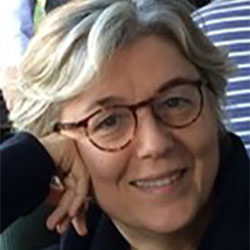
Raffaella Baccolini
University of Bologna
Bio
Raffaella Baccolini teaches British and American Literature and Gender Studies at the University of Bologna, Forlì Campus. Her research focuses on women’s writing; feminist criticism; dystopia and science fiction; utopian studies; modernism; memory and trauma; and cinema. She chairs the PhD program in Translation, Interpretation, and Intercultural Studies and is the PI for the Creative Europe projects G-BOOK and G-BOOK2 on gender-positive literature for children and teens.
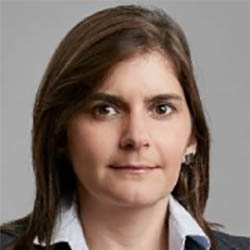
Bianca Vienni Baptista
ETH Zürich
Bio
Bianca Vienni Baptista is an Anthropologist, holds a PhD in Cultural Studies and is a postdoctoral researcher with the Transdisciplinarity Lab at ETH Zurich. As a researcher and lecturer, Bianca works in the field of Science, Technology and Society Studies, focusing in particular on the study of interdisciplinary and transdisciplinary knowledge production processes. Her research focuses on the specific conditions for inter- and transdisciplinary research in different countries and on the production and social use of knowledge in developing countries, including the role of universities and other institutions.
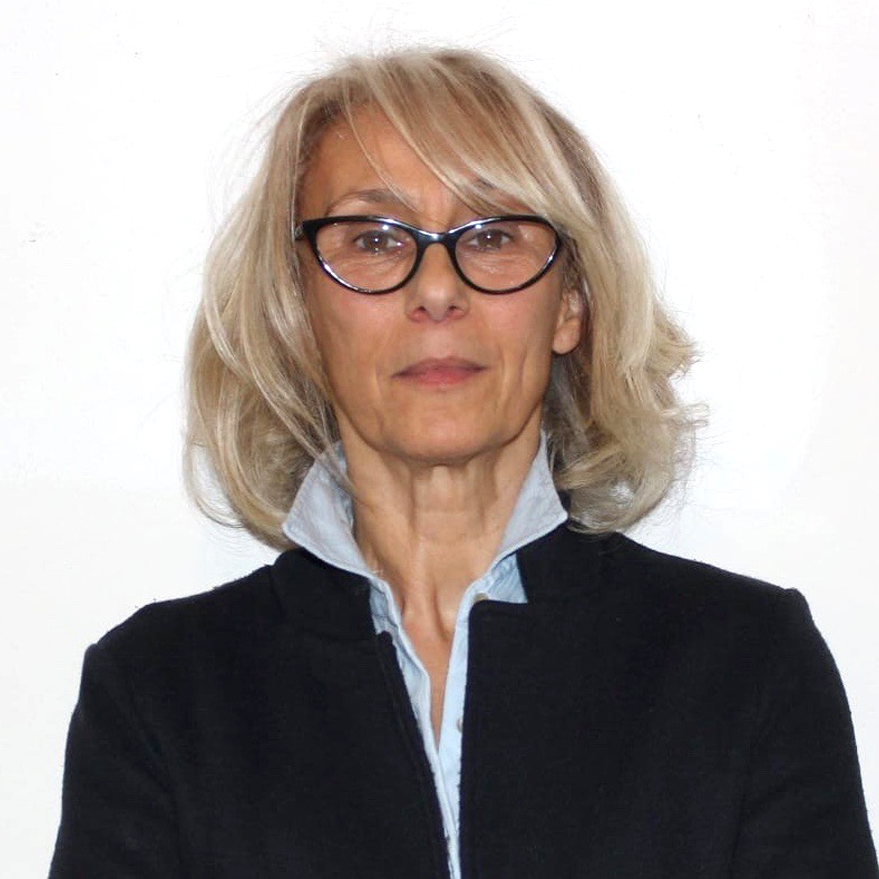
Giuliana Benvenuti
University of Bologna
Bio
Giuliana Benvenuti is full Professor of Contemporary Italian Literature, at the University of Bologna, where she teaches Italian Studies, Literature and Media, and Contemporary Literary Culture. Her main research areas are literature, visual and transmedia studies, migration studies. She coordinates the Master Degree in Italian Studies at the University of Bologna. She is representative for the Humanities in the University Senate and Vice-Director of the Department of Classical Philology and Italian Studies.
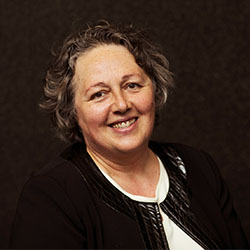
Rosi Braidotti
Utrecht University
Bio
Rosi Braidotti, Utrecht University, the Netherlands, a Continental and feminist philosopher, is the co-coordinator for the Regional Research Team Europe as well as the senior scientific advisor for the WHR as a whole. She is a member of the International Advisory board of CHCI and an elected member of the Executive Committee of CIPSH. Braidotti is currently Distinguished University Professor at Utrecht University. She was the founding Director of the Centre for the Humanities at Utrecht University (2007-2016), and a pioneer in European Women’s Studies: she founded the inter-university SOCRATES network NOISE and the Thematic Network for Women’s Studies ATHENA, which she directed till 2005. She was a Leverhulme Trust Visiting Professor at Birkbeck College in 2005-6; a Jean Monnet professor at the European University Institute in Florence in 2002-3 and a fellow in the school of Social Science at the Institute for Advanced Study in Princeton in 1994. She has been invited to lecture the universities of Harvard, Cambridge, Edinburgh, Sydney, Melbourne, Bologna, Rome, LSE, UCL and many others. She holds honorary degrees from the universities of Helsinki and Linkoping. Among her publications: Nomadic Subjects (1994 and 2011); Nomadic Theory (2011); Transpositions (2006),The Posthuman; Posthuman Knowledge.
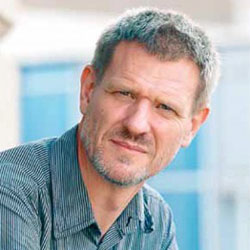
David Bueno
University of Barcelona
Bio
David Bueno is a professor and researcher in the Biomedical Genetics, Evolution and Development Section at the University of Barcelona, and is the Chair of UB-EDU1ST Neuroeducation. Specialising in genetics, neuroscience and developmental biology, his research is focused on the correlation between brain training and functioning, and behaviour, especially in learning processes. He teaches in the field of genetics, teacher training, dissemination and neuro-education. He has published more than 60 specialised scientific papers, 19 textbooks and essays and more than 600 scientific dissemination articles in different media. He has participated in the compilation of several encyclopaedic works and has been the director of the “Ecosistemes dels Països Catalans” atlas. In 2010 he won the European Award for Scientific Dissemination. In 2018 he received the Magisterium Prize for his efforts to bring neuroscience closer to education, and in 2019 the Claustre de Doctors at the University of Barcelona awarded him a distinction for his dissemination work. He is a member of various think tanks on educational change promoted by the Government of Catalonia.
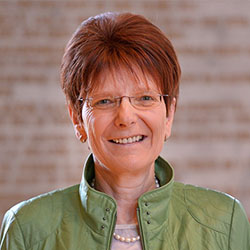
Hiltraud Casper-Hehne
University of Goettingen
Bio
Hiltraud Casper-Hehne, Universität of Göttingen, is a German scholar, university lecturer and, since April 2009, Vice President of the University of Göttingen. In April 2004 Casper-Hehne was appointed Professor of Intercultural German Studies/Language Studies at the Faculty of Philosophy in Göttingen. In Intercultural German Studies, Casper-Hehne has initiated the project “Interculture” within the framework of the EU university programme Asia-Link to promote cooperation between Europe and China. From 2007 to 2009 she was a member of the University Senate. In April 2009, Casper-Hehne was appointed Vice-President for Research and International Affairs, and in April 2011 Vice-President for International Affairs at the University of Göttingen. Hiltraud Casper-Hehne was a member of the Board of the HERA network from 2012 to 2014 and a member of the Executive Board of the Coimbra Group from 2014 to 2016. In 2014, she also chaired the Council of Experts for the Development of a China Strategy of the Federal Ministry of Education and Research. Since 2015, she has been a member of the Language Advisory Board of the Goethe-Institut and since 2016 a member of the Executive Board of the German Academic Exchange Service. Since early 2018, she has been a member of the EU-Ad- hoc Expert Group on European Universities. Hiltraud Casper-Hehne was awarded an honorary professorship by Beijing Foreign Studies University in Beijing on April 6, 2010.
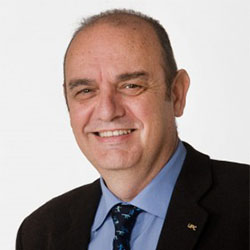
Josep Casanovas
UPC Barcelona
Bio
Josep Casanovas is Professor in the Statistics and Operations Research Department at the UPC, specializing in High Performance Computing (HPC) and Simulation. Director of inLab FIB at Barcelona School of Informatics, UPC-BarcelonaTech, an innovation lab mainly focused on data science, smart mobility and cybersecurity (htttp://inLab.fib.upc.edu) and composed of more than 80 researchers and developers. His main research areas are Modeling and Simulation, Agent Based Modeling (ABM) and HPC. Author of research articles in the fields of ABM and HPC and Simulation, he has collaborated with many research and development projects for the EU and different companies and institutions. Director of the Center for Cooperation to Development (CCD) at the UPC (1993-2006 and 2012-2017). Coordinator of the Severo Ochoa Research Excellence Program in the Barcelona Supercomputing Center (BSC-CNS) (2012- 2017). At present, he is leading the HPC Modelling and Simulation for Societal Challenges (HPC4SC) Research Group in the Computer Science Department at the BSC. This research group is mainly engaged in setting up multidisciplinary teams in an emerging area seeking to link Exascale computing and modelling and simulation applied to Social Sciences and Humanities. Specifically, this group is interested in innovating and gathering experience in platforms, methods and tools for HPC virtual experimentation in collaboration with researchers in the fields of demographics and migratory flows, population and ageing, and public policies applied to territorial and urban planning and their socio-economic impact in the medium and long term.

Chiara Elefante
University of Bologna
Bio
Chiara Elefante is full Professor of Language and Translation – French, at the University of Bologna, Forlì Campus where she teaches Translation Studies (French-Italian) and Contemporary French Literature. She is currently Vice-Rector for Human Resources. Her main research areas in translation for the publishing industry concern self-translation, poetry, theater, and gender, while in literature she has worked on history and stories; memory and trauma; twentieth-century poetry. She is also a translator and coordinates the MeTRa Center on translation for children.
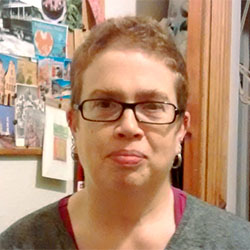
Isabel Fletcher
University of Edinburgh
Bio
Isabel Fletcher is a Senior Research Fellow in Science, Technology and Innovation Studies, at the University of Edinburgh. Isabel is a qualitative social scientist whose research is based in science and technology studies, but also incorporates approaches from sociology and food policy. She has research interests in policy approaches to food, nutrition and eating, and the ways in which interdisciplinary research is used to address complex social problems. She has worked in a variety of interdisciplinary contexts on public health models of obesity, food security policy, and sustainable diets. Isabel is a co-convenor of the interdisciplinary network Food Researchers in Edinburgh (FRIED).
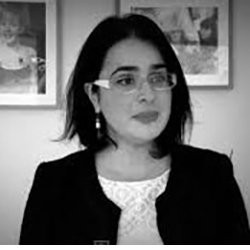
Cristina Gamberi
University of Bologna
Bio
Cristina Gamberi is Research Fellow at the University of Bologna. She was awarded the PhD title from the University of Naples and previously she studied Philosophy at the University of Bologna, where she also obtained the double title within the European Master Degree GEMMA in Modern, Comparative and Post-Colonial Literature and in Women’s and Gender Studies, Hull (UK). Her research interests include the intersections between feminist contemporary philosophy, feminist literary criticism, life writing and children literature. She is member of the Doris Lessing Society and MeTRa Center on translation for children.
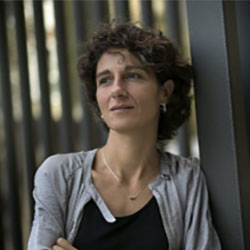
Marina Garcés
University of Zaragoza
Bio
Marina Garcés is a philosopher and full university professor. After fifteen years at the University of Zaragoza, she is currently an associate professor at the Open University of Catalonia, where she manages the Masters in Philosophy for contemporary challenges. Her latest books are Un mundo común (Bellaterra, 2012) Filosofía inacabada (Galaxia Gutenberg, 2015), Fuera de clase (Galaxia Gutenberg, 2016), Nueva ilustración radical (Anagrama, 2017, Ciutat de Barcelona Essay Award 2017) and Ciudad princesa (Galaxia Gutenberg, 2018). Since 2002, she has also been working on the collective thinking programme titled Espai en Blanc. She believes in the statement of commitment to life as a shared problem and her philosophy involves widespread experimentation with ideas, learning and ways of intervening in our modern world.
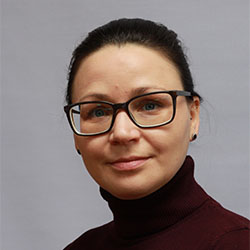
Christina Henkel
University of Goettingen
Bio
Christina Henkel is scientific project co-ordinator and researcher at the Departement for Intercultural German Studies at Goettingen University. She studied in Germany, Spain and China and holds a Master Degree in Cultural Anthropology, Political Sciences, Economic and Social History and a German-Chinese Doublemaster Degree in Intercultural German Studies. She obtained her doctorate on the subject of shaping the world in a foreign cultural the Georg-August-University of Goettingen. Prior to this, she worked as a lecturer of the German Academic Exchange Service at the University of Nanjing in China. Her research interests include interculturality, subject-centered interaction and construction of knowledge, life-world design and educational processes in the field of tension between university, everyday life and society.
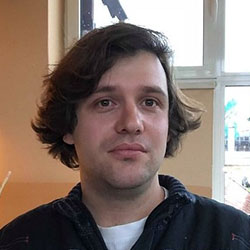
Marjan Ivković
University of Belgrade
Bio
Marjan Ivković, University of Begrade, Serbia, is researcher at the Institute for Philosophy and Social Theory. He completed undergraduate and Mphil studies of sociology at Belgrade University and obtained his PhD in sociology from Cambridge University. In his research, Marjan deals with problems of contemporary social theory and social philosophy, and his work is particularly centred around the analysis of the potential of different varieties of contemporary critical theory for conceptualizing and diagnosing complex forms of societal domination in the era of neoliberal revolution.
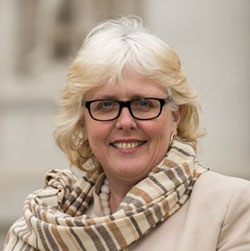
Jane Ohlmeyer
Trinity College Dublin
Bio
Jane Ohlmeyer, MRIA, FTCD, FRHS, is Erasmus Smith’s Professor of Modern History (1762) at Trinity College Dublin. She was Director of the Trinity Long Room Hub Arts and Humanities Research Institute from 2015-2020 and has been chair of the Irish Research Council since 2015. She is a passionate advocate for the Arts and Humanities both nationally and internationally. She is Principal Investigator of the SHAPE-ID and Human+ Horizon 2020 projects and is currently working on a study of “Ireland, Empire and the Early Modern World.”
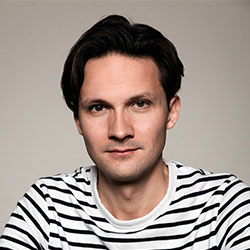
Daan F. Oostveen
Utrecht University
Bio
Daan F. Oostveen is a postdoctoral researcher at the Institute for Culture Inquiry at Utrecht University. He studied philosophy and comparative literature at Ghent University. His PhD from the Faculty of Religion and Theology of VU Amsterdam is on multiple religious belonging. In 2018, he stayed for a research visit at the Renmin University of China in Beijing, at the Faculty of Philosophy, where he studied Chinese religious diversity. His research interests include Asian and hybrid religion, French critical theory, and the posthumanities.

Rita Monticelli
University of Bologna
Bio
Rita Monticelli is full Professor of English Literature at the University of Bologna, where she teaches British and Postcolonial Studies, Gender Studies and History of Culture. Her research areas include literature and visual studies, feminist and gender criticism, science fiction and trauma studies. She coordinates the Erasmus Mundus joint Master Degree in Gender and Women’s Studies (GEMMA) at the University of Bologna, and the Centre for Utopian Research and Studies. She has carried our international research projects on gender and culture of equality. She is currently Delegate of the Rector for Equal Opportunities.
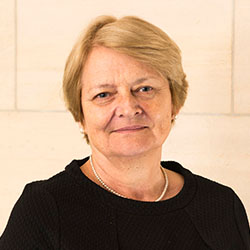
Henrietta L. Moore
University College London
Bio
Henrietta L. Moore is the Founder and Director of the Institute for Global Prosperity and the Chair in Culture, Philosophy and Design at University College London, United Kingdom. Her work integrates disciplines from social science to the sciences, arts and business innovation, and she applies these different perspectives to inform research and policy at all levels. Professor Moore was formerly William Wyse Chair of Social Anthropology at the University of Cambridge, the London School of Economics (LSE) Deputy Director for research and external relations, and Director of the Gender Institute at the LSE. She is a respected leading public intellectual with much of her work speaking to contemporary politics and economics, Universal Basic Services, Brexit, Artificial Intelligence, displaced people and the gender pay gap. She retains ongoing interests on issues of globalisation, mass migration, gender, social transformation and livelihood strategies, new technologies and agroecology which have shaped her career and her engagement with policy making. She is committed to involving grassroots communities in the production of new types of knowledge through citizen science research methodologies. Professor Moore leads the ESRC-funded RELIEF Centre in Lebanon and the Procol Kenya collaborative research programme. She is Chair of the London Prosperity Board, and Chair of FastForward 2030 a network and collaborative platform for businesses developing new business models to deliver on the United Nations Sustainable Development Goals.
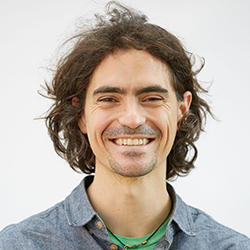
Juan Manuel Moreno
University College London
Bio
Juan Manuel Moreno is a Research Fellow at the Institute for Global Prosperity (IGP) at University College London, United Kingdom. He has an interdisciplinary and cross-sectoral background in history, political science, international migration, community development and humanitarian work. Prior to joining the IGP, Juan Manuel worked as a Visiting Researcher at Fudan University (Shanghai, China) where he led community-university collaborative work on capacity development in rural Yunnan, as a Research Officer at the University of Brighton, and as a Research Manager for an international NGO engaged in disaster risk reduction and response. Juan Manuel’s research experience and interests bring together oral history, socio-political analysis, social justice and community resilience.
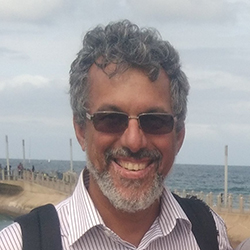
Luiz Oosterbeek
Polytechnic Institute of Tomar
Bio
Luiz Oosterbeek is Professor of Archaeology at the Polytechnic Institute of Tomar and holder of the UNESCO chair in Humanities and Cultural Integrated Landscape Management. His archaeological research focuses on the transition to food producing economies in Portugal and SW Europe, Africa and Southern America. He also conducts research on heritage and landscape management, on which he published over 300 papers and 50 books. He is past Secretary-General of the International Union of Prehistoric and Protohistoric Sciences and, currently, he is the Secretary-General of the International Council for Philosophy and Human Sciences.
Franziska Pannach
University of Goettingen
Bio
Franziska Pannach is a PhD student in Computational Linguistics with a specialization in Digital Humanities at the Institute of Computer Science and the Göttingen Centre for Digital Humanities. She has previously worked in the fields of Library and Information Sciences, and Academic Publishing. Her research interests include computational folkloristics, natural language processing for under-resourced languages, and narrative pattern detection. She has a special passion for the folktales of the amaZulu.
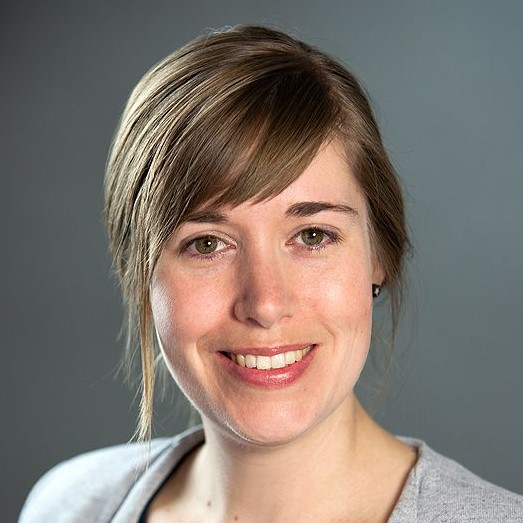
Tanja Reiffenrath
University of Goettingen
Bio
Tanja Reiffenrath works in Student and Academic Services at the University of Goettingen, Germany, and is the coordinator of the project ‘Internationalisation of the Curricula’. Tanja holds a PhD in American Studies and has studied at the Universities of Paderborn and Siegen, Germany, as well as the University of Oklahoma, USA. In 2017, she co-edited the volume “Internationalisation of curricula in higher education: Concepts, initiatives, actions” as well as a special issue on the topic of the open access “Zeitschrift für Hochschulentwicklung” (Journal for Higher Education Development). She is a regular reviewer for the “Journal of Studies in International Education” and co-editor of the book series “Innovative University: digital – international – transformative” at wbv.
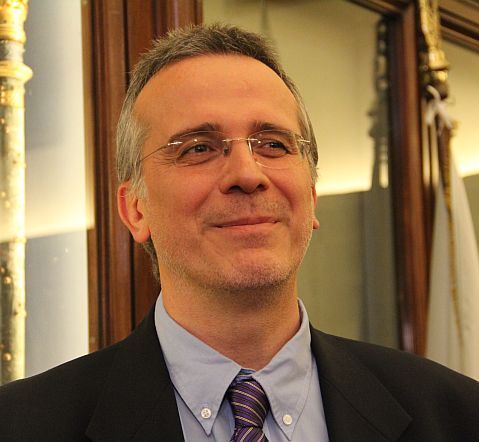
Antonino Rotolo
University of Bologna
Bio
Antonino Rotolo is full Professor of philosophy of law and currently Vice-Rector for Research at the University of Bologna. He is an international expert in legal theory, legal logic, deontic logic, formal methods for practical reasoning, and theoretical artificial intelligence and law. In these areas Antonino Rotolo has carried out research projects at the international, European, and national levels. He has been visiting scholar at King’s College London and at the University of Queensland and Queensland University of Technology (Australia). Antonino Rotolo served as a board member or reviewer for several international journals and book series and as chair or member committee of many international conferences and workshops. of many international conferences and workshops.
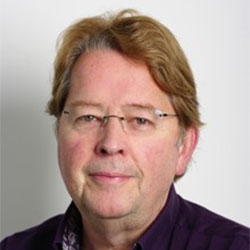
Jack Spaapen
University of Amsterdam
Bio
Jack Spaapen received his training in sociology and cultural anthropology at the University of Amsterdam. Jack’s PhD is in Science and Technology Studies, focusing on methods for the evaluation of research in the context of societal and policy demands. Jack is senior policy advisor at the Royal Netherlands Academy of Arts and Sciences with expertise in areas including societal impact evaluation, research and innovation policy, responsible research and innovation and scientific advice. Currently he is interim executive secretary of the Medical Advisory Council of the Academy.
Caroline Sporleder
University of Goettingen
Bio
Caroline Sporleder is a professor of Digital Humanities at the Institute of Computer Science and a co-opted professor at the Institute of Digital Humanities at the University of Göttingen. She is also the Executive Director of the Göttingen Centre for Digital Humanities. Her research interests include statistical modelling of discourse and semantics, digital approaches to cultural heritage data, and cross-lingual, multi-lingual, and cross-domain natural language processing.
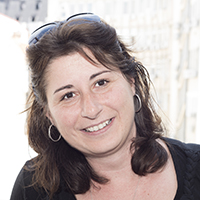
Đurđa Trajković
University of Belgrade
Bio
Đurđa Trajković, University of Belgrade (Serbia) received her PhD in Spanish from the University of Wisconsin Madison and has been a scholar at the Institute for Philosophy and Social Theory at the University of Belgrade, Serbia since 2016. She was a post-doctoral fellow and visiting assistant professor at the University of Tennessee, University of Michigan and Indiana University (USA). She has been awarded several research grants and fellowships such as the Humanities Exposed (HEX) award for public engagement and Chancellor’s Fellowship for the Humanities. Her research interests include literary, feminist, and postcolonial theory within Hispanic studies. She has published numerous articles and book chapters on different topics such as queer theory, translation, mourning, rhetoric of modernism, engagement studies. Currently, Đurđa is working on a book Acts of Engagement: Literature and Latin America (in Serbian) and Feminist Theories in Latin America (in English).
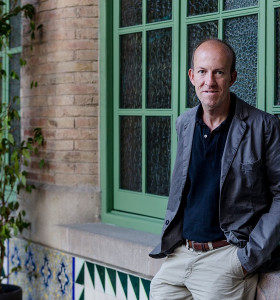
Josep M. Vilalta
Global University Network for Innovation (GUNi)
Bio
Josep M. Vilalta is Director of the Global University Network for Innovation (GUNi) and Executive Secretary of the Catalan Association of Public Universities (ACUP). Specialist in public management and public policies and in higher education and research management, he holds an experience of thirty years on different leading positions on public sector organizations as well as on different higher education institutions. He has promoted and participated in various projects and groups of experts of the Government of Catalonia and the Government of Spain, the European Commission, the OECD, UNESCO, and several countries in education and universities, political science and public policy management. He has published nearly a hundred papers for journals and publications, book chapters and books on public administration, public policy, education, universities and scientific research policy. He is member of the group of experts of the Spanish university policy think tank Studia XXI, member of the Advisory Boards of Fundació iSocial and ‘El Diari de l’Educació’. He is a regular contributor to different national and international publications and to the newspapers ARA, NacióDigital and La Vanguardia. He holds a Degree in Geography and History (UB), a Master in Public Management (UAB), a Master in Political and Social Theory (UPF) and a Postgraduate in Management of Higher Education (Open University/Universiteit Twente). He has been promoter and director of the Master of Management and University Policy at UPC and visiting professor in different institutions.
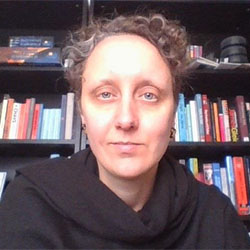
Doireann Wallace
Trinity College Dublin
Bio
Doireann Wallace is Research Project Manager of the SHAPE-ID Horizon 2020 project at the Trinity Long Room Hub Arts and Humanities Research Institute, Trinity College Dublin. Her PhD research explored how digital networks and platforms were transforming photographic culture and communication. She has previously worked as a research funding officer, an instructional designer, an art critic and a lecturer in Photography and Visual Culture.
